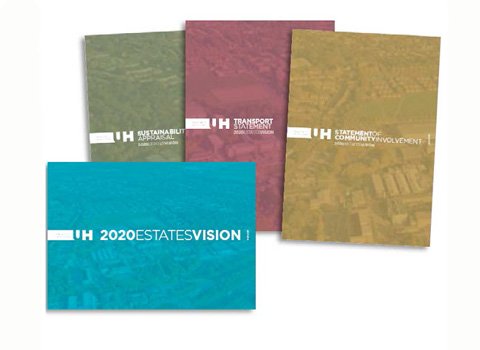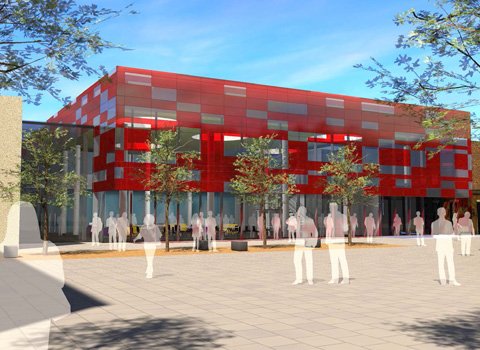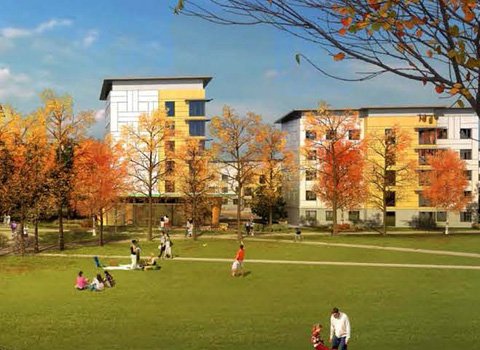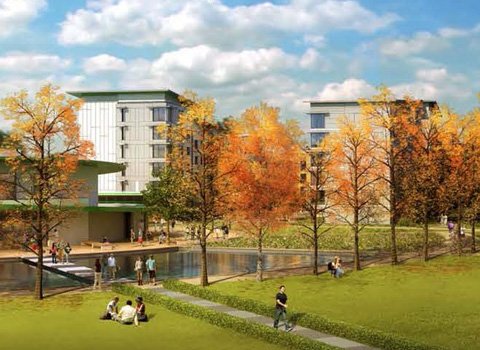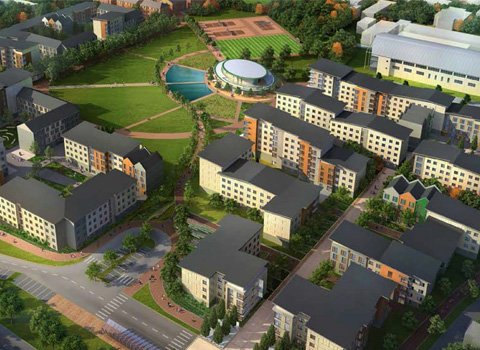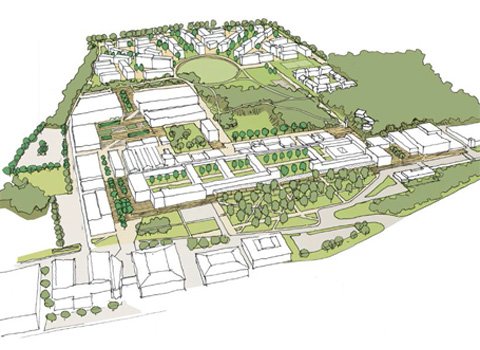University of Hertfordshire – 2020 Estates Vision
Founded as a Technical College in 1952, the University of Hertfordshire has experienced significant development and expansion over the last 60 years. Such rapid growth has resulted in incremental expansion, creating fragmented learning and teaching spaces. Since the late 1990s, the University of Hertfordshire has been engaged in a significant renewal of its facilities, informed by an institutional goal to outperform its competitors.
As planning advisers to the University of Hertfordshire for 15 years, Turnberry was appointed to deliver a masterplan for the campus: the 2020 Estates Vision. Our objective was to establish a strategic framework that was accepted by stakeholders, the local community and, crucially, the Local Planning Authority, and within which future proposals could come forward and be quickly approved, enabling the University to fulfil its ten-year campus investment strategy. The resultant Estates Vision provided guidance and direction to the University to address new challenges in higher education and relieve pressures in the local housing market, whilst de-risking development across the estate.
Turnberry grounded the project early on with a series of internal consultation exercises with both staff and students to scope issues directly affecting the primary users of the campus.
Essential to securing legitimacy early on in the process was Turnberry’s strategic relationship with Welwyn Hatfield Borough Council. This included regular officer and senior official meetings and briefings with elected politicians affording them the opportunity to ask questions and receive clarifications in respect of the University’s plans prior to submitting the Estates Vision for formal endorsement. Through this approach, the guiding principles of the Estates Vision were endorsed by senior officials and politicians prior to the detail of the Vision being considered.
The detail comprised the actual masterplan, but was accompanied by critical environmental and transportation strategies and assessments that enabled decision-makers to understand the full impacts of the ten year plan and where appropriate, how these impacts would be managed.
Our consultation strategy was also fully documented in a Statement of Community Involvement, which emphasised our thorough approach to the project and led to the Council’s Planning Committee unanimously approving the Vision as a document which will be used to guide all future proposals across the Estate.
Considering the scale of development proposed in the 2020 Estates Vision, Turnberry's success in securing a formal endorsement for the next decade of development was a significant step for the University, providing a greater level of confidence and certainty in the delivery of future projects.
One of the most significant schemes to arise from the Estates Vision was the Student Accommodation Project, which proposed the development of 2,500 new student units at the College Lane Campus. The project is to be delivered in three phases, the first of which was completed in 2014. The Estates Vision has been vital in de-risking this project, providing confidence to the investors supporting the bidding partners and on appointment of the Preferred Bidder, fast-tracking the planning process ahead of financial close.
Turnberry has achieved planning permission for a number of projects contained within the 2020 Estates Vision, including a student centre, main reception building, Science and Engineering buildings, plus a series of environmental improvements.
